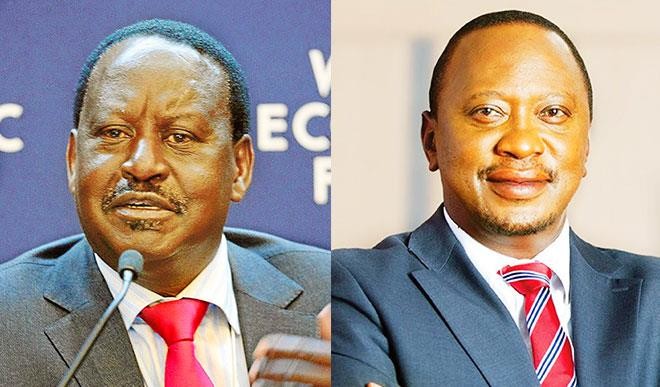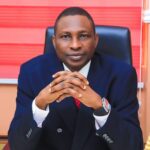
We drove into Nairobi, East Africa’s biggest and most vibrant city, along the western highway that hugs the Great Rift Valley that links Kenya to Uganda. At many points one could see the huge chasm below and the lush vegetation, lakes and distant settlements at the bottom of the valley. We were coming from Naivasha, one of the lake towns in the Great Rift. Further west along the valley are Lakes Nakuru and Victoria, the later largest of them all, straddling the borders of Kenya, Uganda and Tanzania.
Naivasha is a quiet resort town, less than 100 kilometers from Nairobi, but due to fairly heavy traffic, one and a half hours by car. It’s a weekend gate away for Kenyan elites and retreat and conference favourite during the week. It has the lake, some game viewing, especially hippopotamus and flamingoes, three golf courses and a couple of excellent hotels.
I was in Naivasha for a media seminar and spent four days at Enashipai resort, a top end establishment whose expansive green lawns reach up to the shores of the Lake. After a whole day hurdled up with clever journalists analysing the ills of Africa, it was a pleasure to stroll to the lake and spend some quiet time watching the hippopotamus foraging for food. A sign said the animals could be dangerous, but it looked to me they were more interested in their food and each other.
Due to its proximity to the airport in Nairobi and it’s fertile soil, Naivasha has become the centre for growing and exporting of flowers from Kenya. Our group took time off to visit Nina farms, which grows more than a dozen varieties of multi-coloured roses, in some forty extensive green houses, many of them air conditioned to maintain the right temperature. If I remember correctly, some 90,000 tons of roses produced at Nina annually, and that of many other flower farms owned mostly by white settlers, is air-freighted to Europe and sold in supermarkets.
Like most big African cities, Nairobi is not about flowers and placid lakes. It is an overcrowded metropolis, where the shanty towns on the outskirts give way to smart suburbs and glass and concrete towers, as you approach the city centre. My driver, Joseph, is a Luo from western Kenya, which means he disapproves of the present lot in government led by Uhuru Kenyatta, who is a Kikuyu from the central province. He was unhappy with the poor governance and corruption that has made life difficult for those at the bottom of the ladder. But he was more critical of how the electoral system has been rigged to keep his hero and fellow Luo, Raila Odinga, out of power.
I was soon to find out that the views of my semi-educated driver did not differ much from that of more sophisticated Kenyans I met in Nairobi. Even before being dropped in my hotel, I hurried to an appointment with a colleague working in television. When I mentioned that I was heading to the Serena hotel in downtown Nairobi, he said the police had just dispersed an Opposition march led by Odinga near the hotel and he would not be surprised if there was some tear gas smoke still about.
Indeed there were armed police and soldiers patrolling about in Uhuru ( or Freedom) park, a vast green space in the city centre, which is in effect the lungs of Nairobi. On all sides of the park are tall skyscrapers and continuous human and vehicular traffic. But inside it is an oasis of greenery and calm. We went around the park and entered the Serena without any drama. Unable to contain my curiosity, I dropped my bags and strolled into the city centre to find out what the commotion was all about.
Earlier that day (April 25) Mr Odinga and his partners in the Cord opposition group and their enthusiastic supporters, had been violently dispersed by police, as they tried to break into the cordoned off offices of the Independent Electoral and Boundaries Commission ( IEBC), to present a petition.
The Opposition said it has no confidence that the commission will deliver a free and fair election next year. They demanded that the eight commissioners and the chairman, Ahmad Issack Hassan, should step down and a more credible team should be appointed to replace them. As Mr Odinga and his colleagues tried to present this demand to IEBC, armed police disrupted the procession by throwing tear gas at them.
The Cord leaders have had a grouse with IEBC since the disputed elections of 2013, that brought to power the Jubilee coalition, with Uhuru Kenyatta and William Ruto as president and Deputy president. But while Raila Odinga and his colleagues are taking the lead in demanding the removal of the commission, the issue goes beyond political self- interest. Various non- partisan bodies, such as the Catholic bishops, the National Council of Churches of Kenya and the Central Organisation of Trade Unions, have made the same call.
So far the government of Uhuru Kenyatta appears unmoved by the Opposition resort to mass action, to force the reconstitution of the commission. It allowed the police to treat the Cord leaders as common criminals. Nairobi County Police Commander Japheth Koome was reported to have said, “ we have all heard news on tv and radio that there are some people planning to storm these offices, but we have not been informed by them and anyone who tries to storm the building will be forcefully removed.”
Most Kenyans appreciate that this standoff goes beyond a simple matter of law and order. Mr Odinga, Kenya’s veteran opposition leader, who has tried to be president in two previous elections( 2007 and 2013), recently upped the ante by announcing in an Al Jazeera interview, that he might not participate in the 2017 presidential election if the commission was not overhauled.” We will not go to the gallows. If the Electoral Commission is not properly reformed, there would definitely be no reason for us to participate in the coming elections”.
He ominously added, “we need to address factors that may lead us to a state of violence that we witnessed in 2008”. This is reference to what happened after the 2007 election, which most local and foreign observers said Odinga was at the point of winning, when a pliant IEBC suddenly pronounced in favour of sitting president Mwai Kibaki. Violence erupted in the shanties around Nairobi, where Mr Odinga is revered and in towns like Naivasha and Nakuru along the Rift Valley where Luos, Kikuyus and Kalenjins (William Ruto’s tribe) share close proximity.
An estimated 1,500 people were killed. 650,000 were forced to leave their homes to escape marauding bands of youth, willing to kill or loot those who belong to other tribes. Kofi Annan, then UN Secretary General, virtually relocated to Nairobi, where he badgered the warring Kenya leaders and their supporters, to form a unity government. Kibaki held on to the presidency, while Odinga was forced on him as prime minister.
Now 75, 2017 is probably Odinga’s last chance to have a shot at the presidency. No Luo has ever been the president of Kenya. His father Oginga Odinga, was Kenya’s first Vice President (1964-66) under Jomo Kenyatta, father of the current president. But they soon fell out and both father and son were in the political wilderness or prison, during the long years of the first Kenyatta’s life presidency.
There is some similarity between the unfolding events as Kenya moves towards its date with destiny in 2017 and Nigeria’s brush with fate in 2015. A popular Opposition figure, who had held top government post in the past (but is perceived as honest) forms a coalition to unseat a sitting president. Though many regard him as weak and corrupt, the sitting president is desperate for a second term and is willing to deploy all available and borrowed means at his disposal to achieve his aim.
Arising from the bitterness of the previous election which it lost, the Opposition coalition is deeply distrustful of the electoral umpire. The chairman of the electoral commission, if not the other commissioners, is considered by those in know to be incorruptible, if somewhat overwhelmed by the responsibility. It looks as if things are heading for the rocks.
Or are they? Despite our deeply ingrained fears and lack of faith in ourselves and others, political rebirth might well happen in another major African country next year. But we must believe, if we want the help of God!

 Join Daily Trust WhatsApp Community For Quick Access To News and Happenings Around You.
Join Daily Trust WhatsApp Community For Quick Access To News and Happenings Around You.


